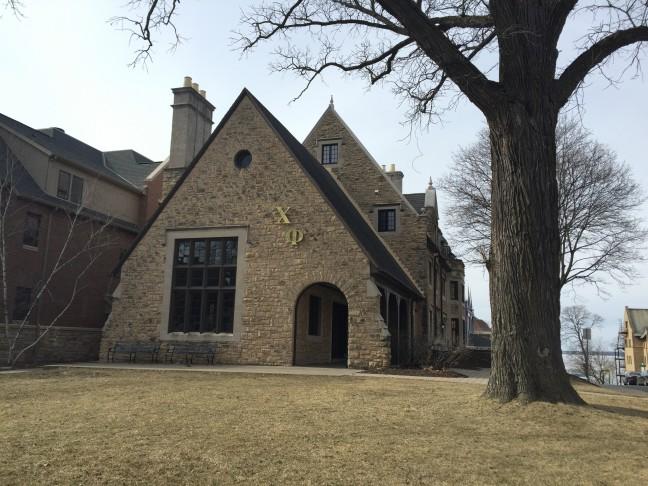The University of Wisconsin’s Chi Phi fraternity chapter has been terminated for “fostering a dangerous hazing environment,” including an incident where a student suffered a concussion, according to a university statement released Wednesday.
After investigating an initial report in January, the dean of students found the chapter had “engaged in food deprivation and stints of hooded isolation,” along with other instances that endangered or put new members’ health at risk during initiation practices in December, according to the statement.
At that time, the chapter was immediately put under temporary suspension.
In addition, the Committee on Student Organizations found the fraternity forced underage members to excessively consume alcohol without risk management measures in place, thus breaking student organization alcohol policies. Regardless of students’ consent, they were subjected to “humiliating, degrading and sexualized conduct,” the statement said.
Sam Ferdig, the Chi Phi chapter’s president, and Michael Azarian, the executive director of the national organization, did not respond to multiple requests for comment.
Chi Phi has the option to appeal the committee’s decision within 10 school days if they feel inclined to do so.
But Eric Knueve, assistant dean of the Center for Leadership and Involvement, said Chi Phi could only appeal based on if they believe they weren’t given due process.
“[They can appeal if] somehow we didn’t follow the procedures we have outlined for ourselves,” Knueve said. “But they can’t appeal on the basis of not liking the sanction or feeling it was incorrect.”
Knueve said the university has received allegations of hazing in the past, but “it is not often that we see this type of hazing.”
The university hasn’t terminated an organization since 2006, although it has implemented several temporary suspensions, he added.
Currently, the only RSO’s under termination status are Chi Phi and Sigma Alpha Mu.
Terminated, as CSO defines it, means the student organization loses its status and benefits under the coverage of registered student organizations.
Those benefits include funding and access to reserving space on campus for events, Knueve said.
Knueve is the chair of CSO, the group that oversees student conduct and implements disciplinary measures for student organizations found to violate the code of conduct. CSO is made up of four members, including Knueve, but the other three are student members.
Because of CSO’s decision, the Interfraternity Council subsequently no longer recognizes the Chi Phi chapter.
Council President Conner Feldmann said in the statement they are in support of the university’s decision to terminate the chapter’s place as a student organization.
“The circumstances involving Chi Phi fraternity are unjustifiable and inappropriate,” Feldman said. “Hazing is strictly prohibited at all times by any persons affiliated with or under the jurisdiction of the Interfraternity Council at UW-Madison.”
Federal student privacy laws prohibit UW from releasing information about any individual facing disciplinary action.
This story has been updated to add details.














